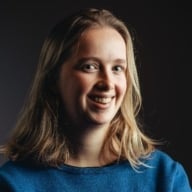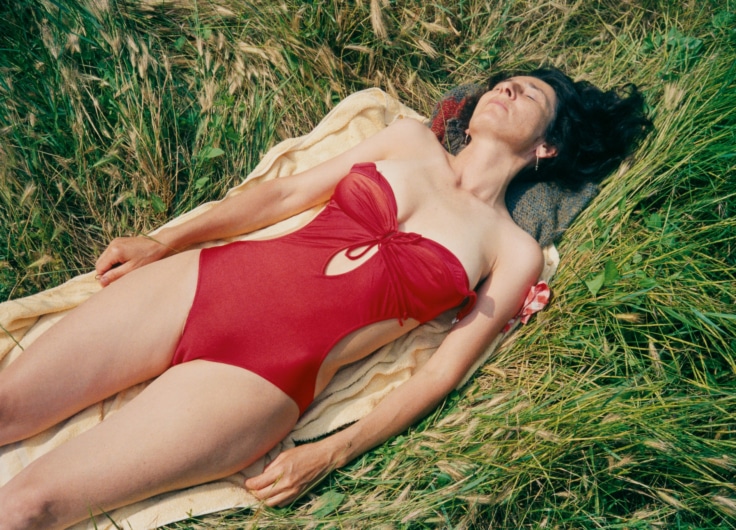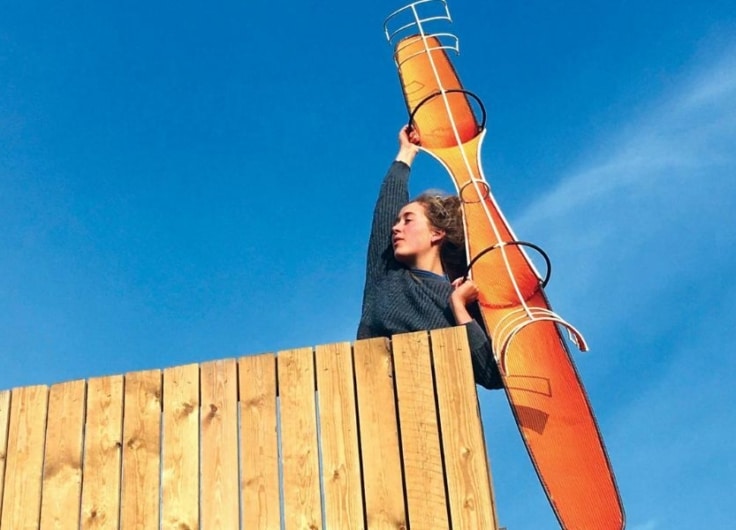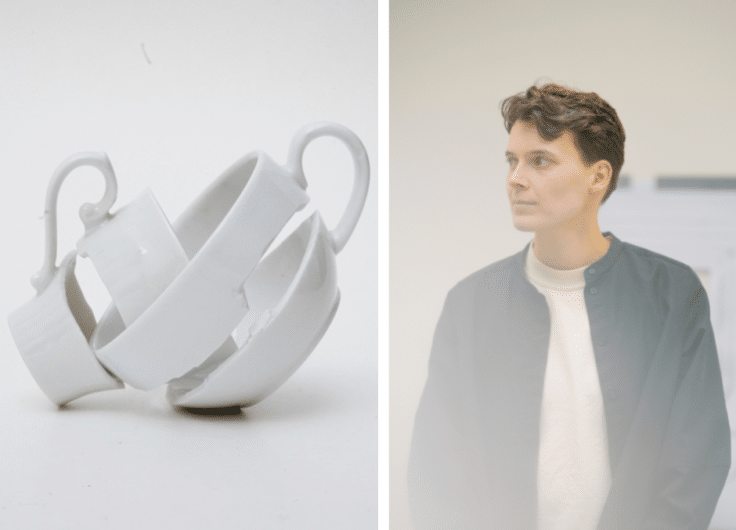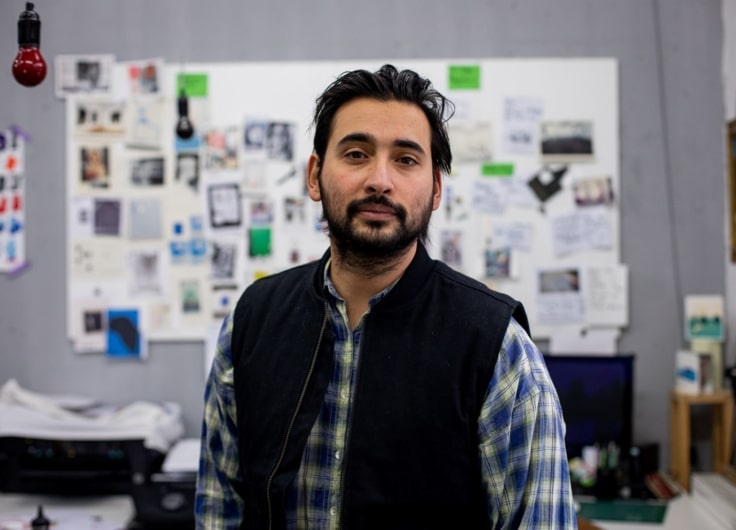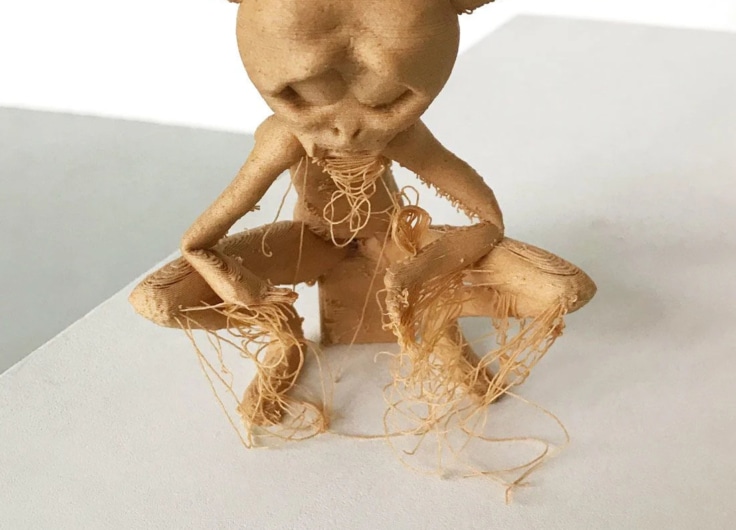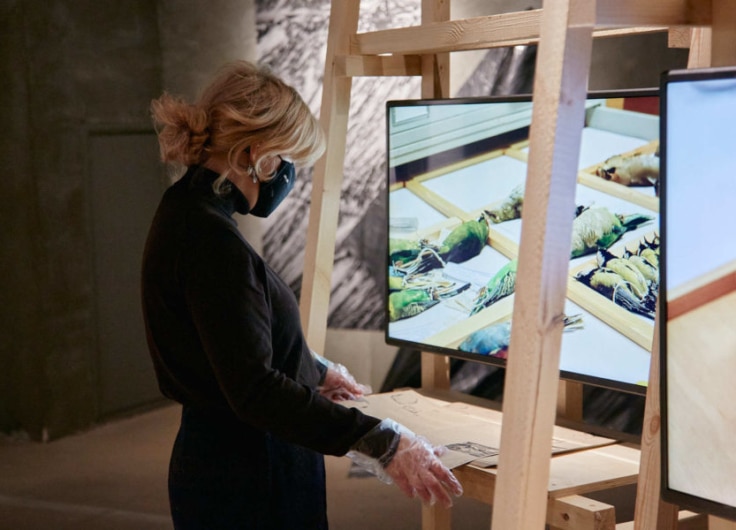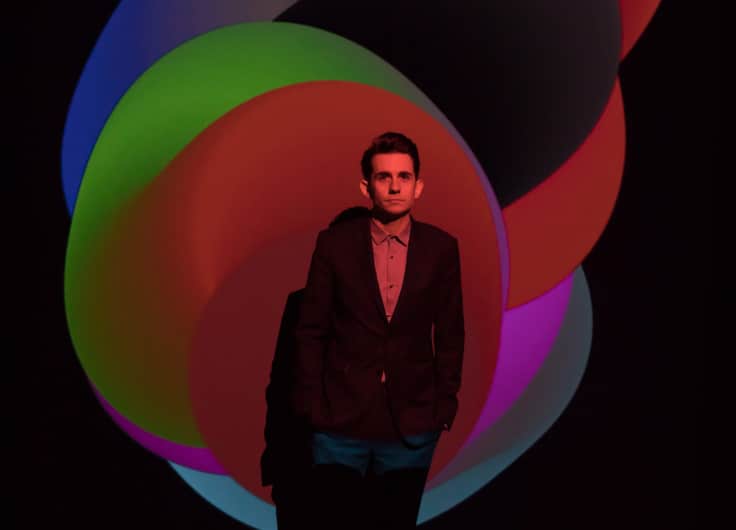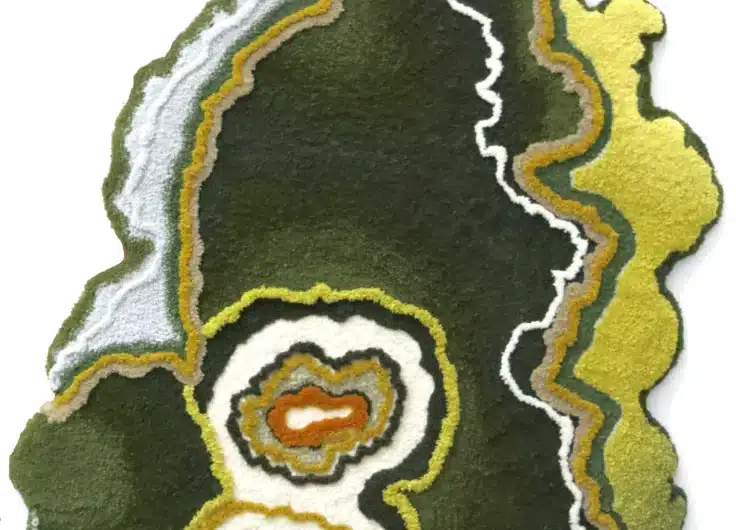Ilke Cop Paints So She Can Start Afresh Again and Again
For Ilke Cop the role of an artist in a crumbling world is to create something from nothing. For a long time, the white canvas scared her, but now she sees all the potential at the point of beginning. It’s also the moment when she feels most aligned with herself. “When I paint, there’s no longer any distance between what I do and who I am.”
In a room in Brussels, about four by three meters big, there is a large canvas leaning against the wall. It is one of the works that visual artist Ilke Cop is working on for her solo exhibition in June at Tatjana Pieters Gallery in Ghent. We see a woman on her knees. She is moulding a figure in the middle of a vast but deserted landscape.
Two days ago, Cop finished the painting. It was an emotional experience. “I was thinking about the situation in Palestine,” she says. “Although this work has nothing to do with that (it’s about a reverse genesis, with the woman as the creative force) I was shocked at how the images we see everywhere seep into my work. The woman is bending, as it were, towards (? over) her lover who is lying motionless. It’s often the women and children who remain after war.”
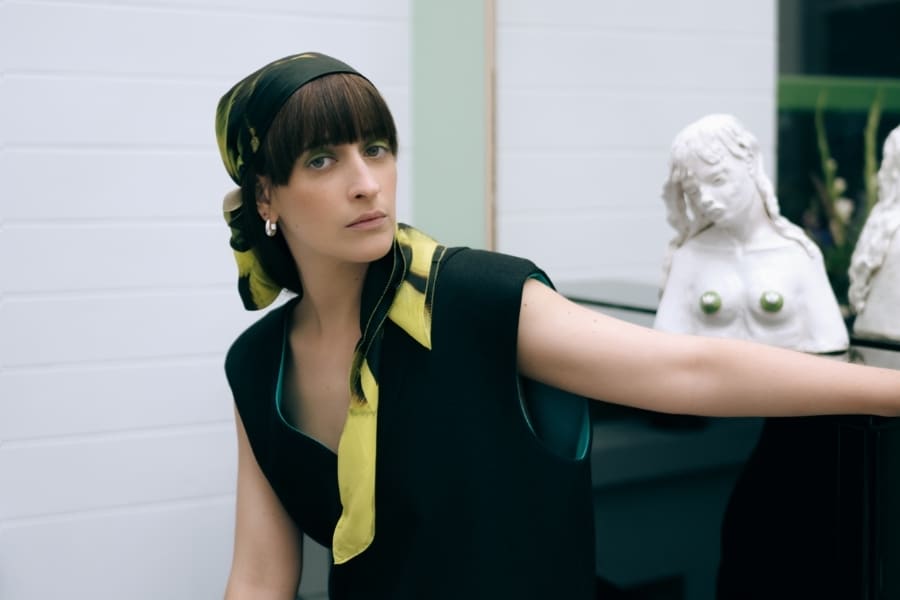 Ilke Cop
Ilke Cop© Jana Germanus
When the world around us crumbles apart, some of the pieces unconsciously creep into our minds and find their way out through our hands. There’s also a lot of strength in kneading and feeling, believes Cop. “There is a generative power in the fact that we continue to create in difficult situations. My paintings are a way of realising that creative power.”
Perhaps it is an answer to the question she has been asking herself for some time: “The world is screwed. How do you deal with that as an artist?” It’s clear to her that the world has reached its end. To try and work out what we do now, she started researching apocalyptic worlds for her exhibition as part of Luxembourg Art Week in November 2023; a theme she’s not yet finished with.
Ilke Cop: 'There is a generative power in the fact that we continue to create in difficult situations'
“I do notice that in this phase I’m more inwardly turned, and dwelling on my role as an artist more. This is also reflected in my work – you see a lonely artist who is moving through a vast landscape and is creating something from nothing.”
Genesis
In contrast to the ending, on which the works for Luxembourg Art Week were focused, Cop goes back to the beginning in her new series – the genesis. Returning to a fictional beginning helps her to move on, she says. It provides her with fertile ground to create new works. It’s something that also fascinates her personally, because she knows better than anyone how much power lies hidden at the beginning of something. “I am someone who has lived many lives and always starts over. All the potential is packaged up in that beginning.”
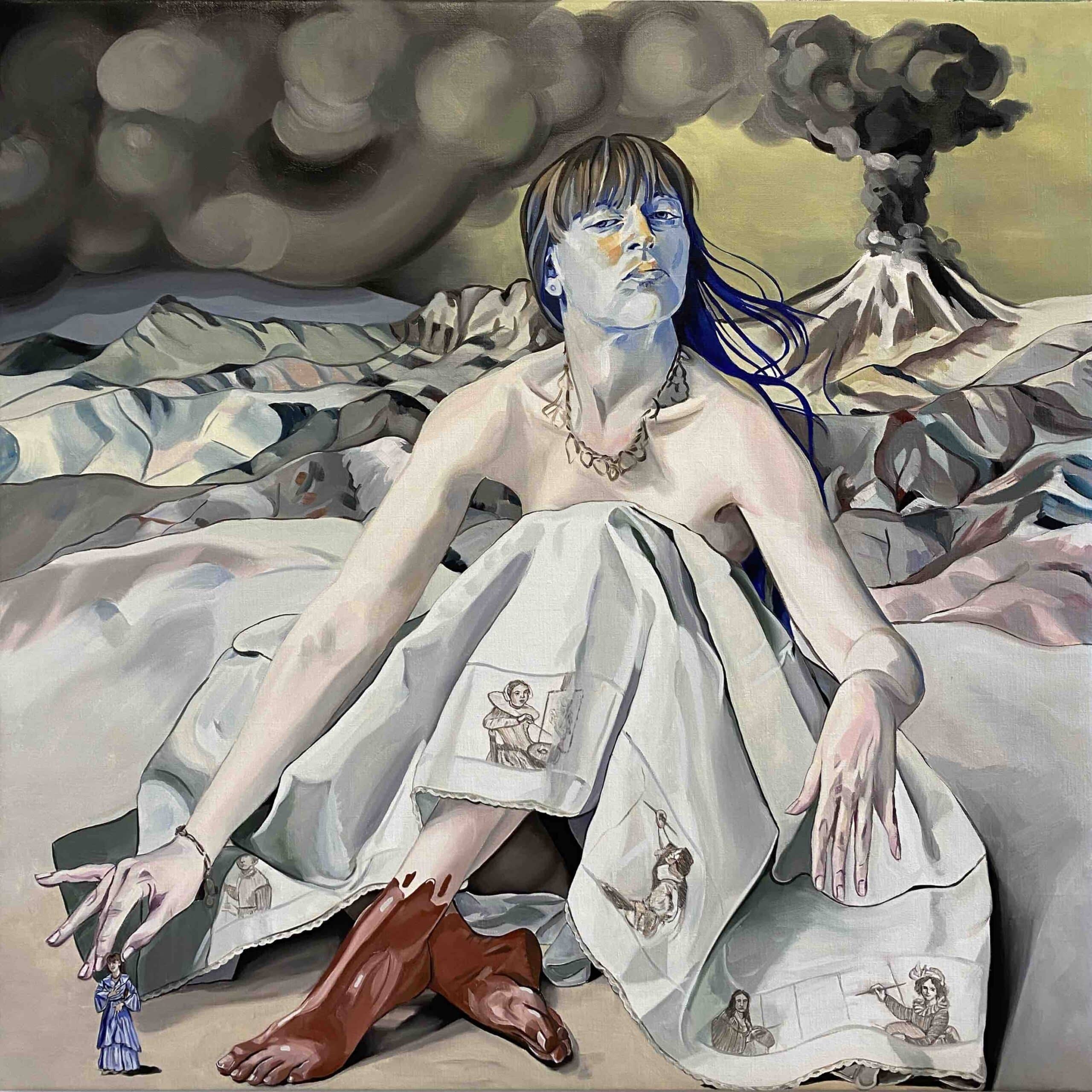 Bright & Early I (2023)
Bright & Early I (2023)She refers, among other things, to her previous life as a fashion designer for the eponymous label ILKECOP. Although the dream to paint was always there, she planned on getting her degree first, as is often the case. But even after her Art History studies, she heard a scared voice.
“I pushed away the part of me that wanted to paint because I had a certain image of what an artist was – namely a man, an inexplicable genius, who withdraws to his studio. I didn’t identify with that. I also found it scary to start with a white canvas. That’s why I found my way into the applied fashion world, where I could start from a silhouette or a piece of textile.”
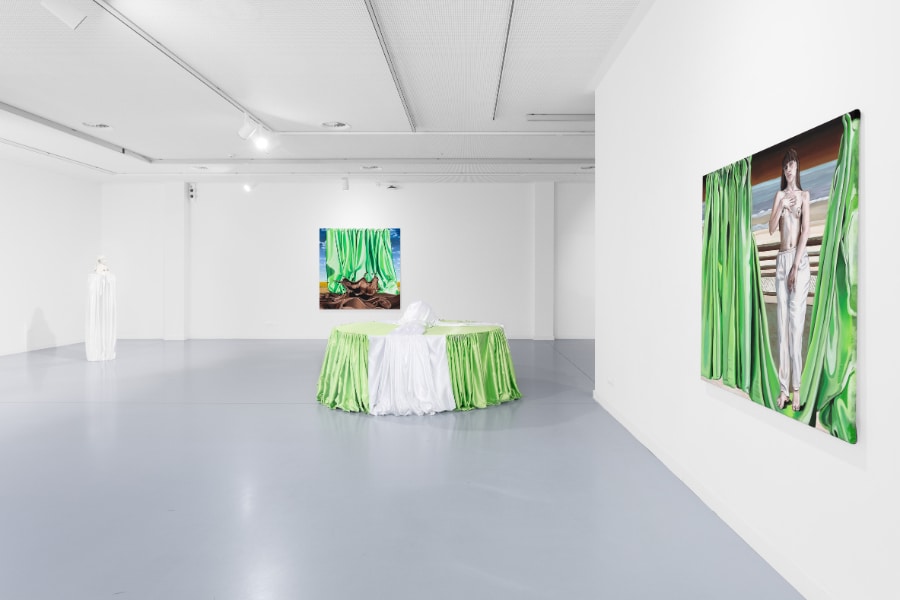 Exhibition view ‘Folded : Whites’ at Pilar in Brussels (2022)
Exhibition view ‘Folded : Whites’ at Pilar in Brussels (2022)© Silvia Cappellari
Her brand ILKECOP was quite successful, maybe even a little too successful. After a while, she was busier running a company than developing her creative ideas. With the fun gone, she decided to take a break and skip a collection. “I put everything to one side in my studio and set up an easel. I had never painted before, but I had always fantasised about it and this time I really wanted to do something for myself. It was going to be a hobby, just for fun.” She laughs. “I’m just not very good at that. I always become totally obsessed with stuff.”
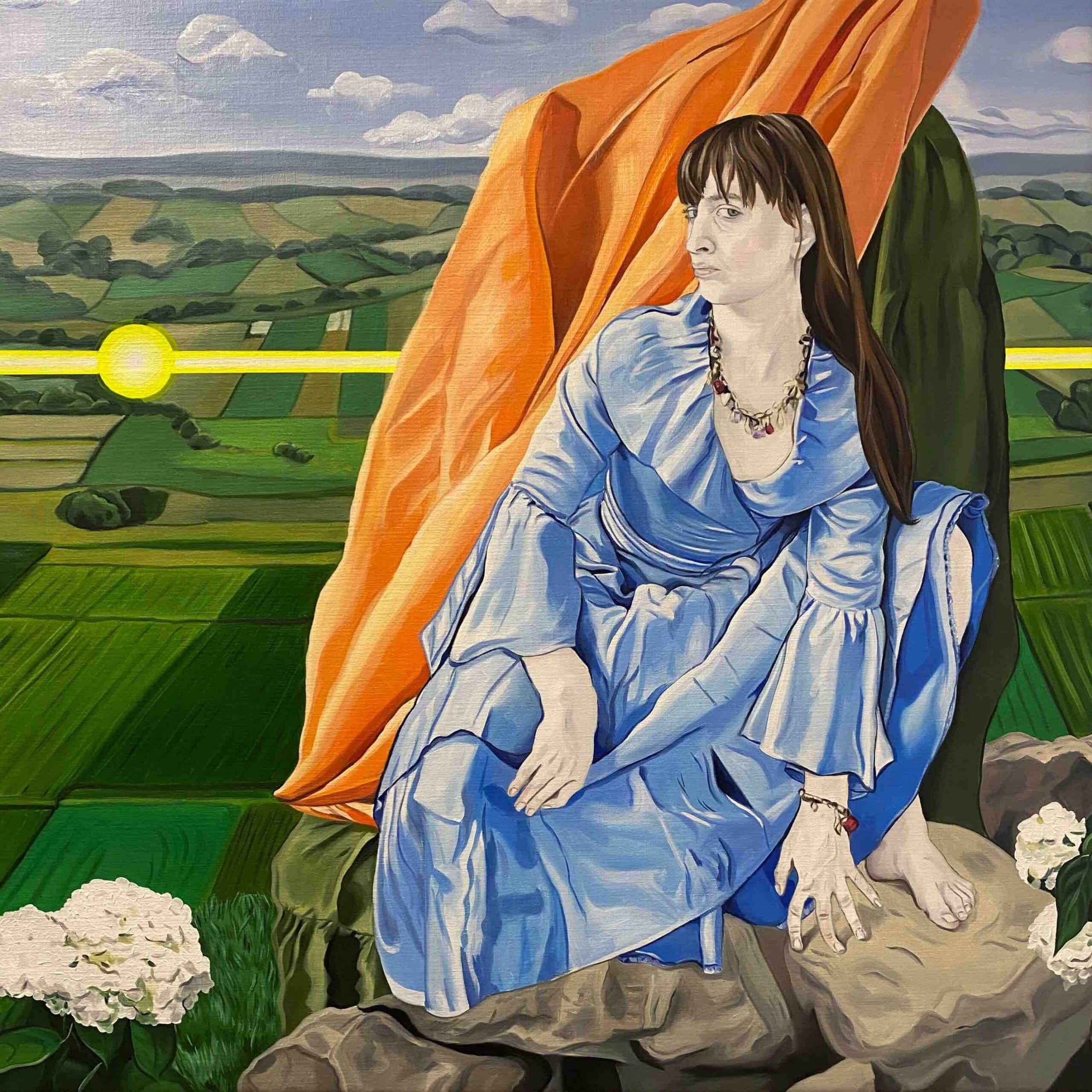 Leading the Invasion I (2022)
Leading the Invasion I (2022)Self portraits
Call it obsession, call it ambition or passion, the most important thing is that painting brought back the fun. “For the first time I felt like I was aligned with what I was doing,” she remembers. “There was no longer a distance between what I do and who I am, which is strange really, because my fashion brand bore my name, but actually made me feel schizophrenic. I didn’t want to be associated with it.”
The responsibility she felt towards her customers also disappeared. “When I make a painting, I don’t think about how it’ll be received. I made fashion for other people, whereas my art come first and foremost out of me.”
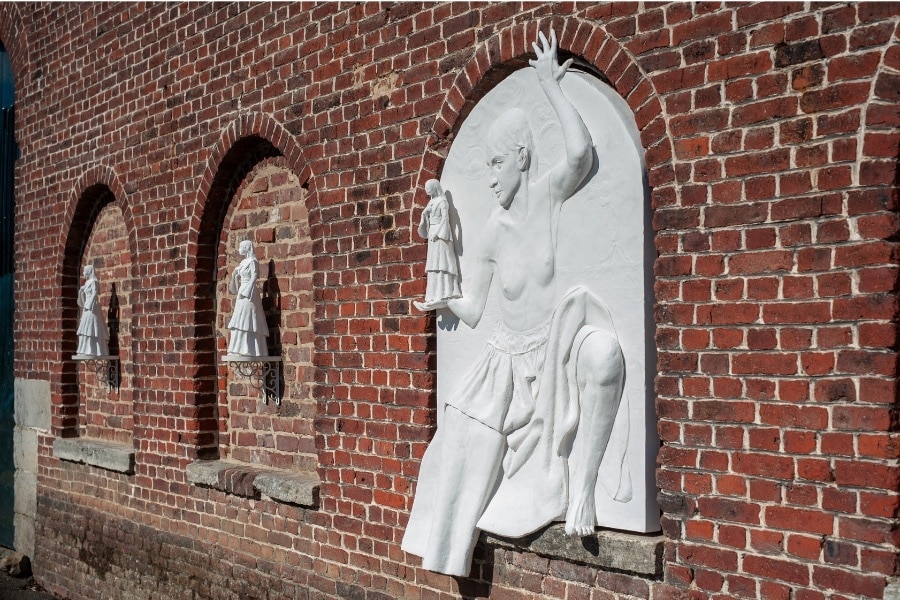
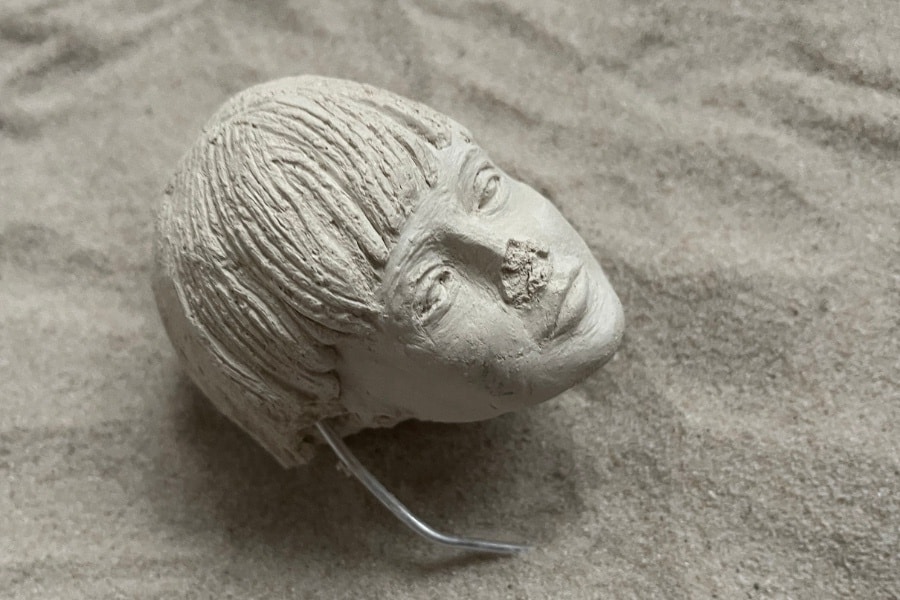 ‘Virago’, installation of 9 sculptures in Sint-Denijs-City (2023) and ‘Pieace III’ (2023)
‘Virago’, installation of 9 sculptures in Sint-Denijs-City (2023) and ‘Pieace III’ (2023)© Johan Duyck
It is one of the reasons why she includes her own image in her paintings, in order to stay close to reality and speak with her own voice. “I’ve thought about it for a long time. For example, I used to work on the theme of colonialism. But can I speak for the people who experienced that violence? I came to the conclusion that I can only speak from my baggage resulting from the colonial past of my ancestors.”
Cop believes that the most personal and concrete harbours the most universal. By painting her body again and again she can go into more depth. “If I depict a different person each time, they become portraits,” she explains. “But because I always start from the same figure, it transcends me.” The latter is also a way of knowing when a work is finished. “As soon as I get the feeling that the figure in the painting has become someone else, it’s done.”
Image bank
It’s then that she is completely ready to send her work out into the world. Once a painting falls into place, she wants to exhibit it as quickly as possible. She sighs because the exhibition in June still feels far away. “I’ve put something of myself into the work, but for all viewers it will have a life of its own, intertwined with the existing images in their heads. I’d find it really interesting if my work also takes up a place in that image bank and helps determine how they go on to look at other things.”
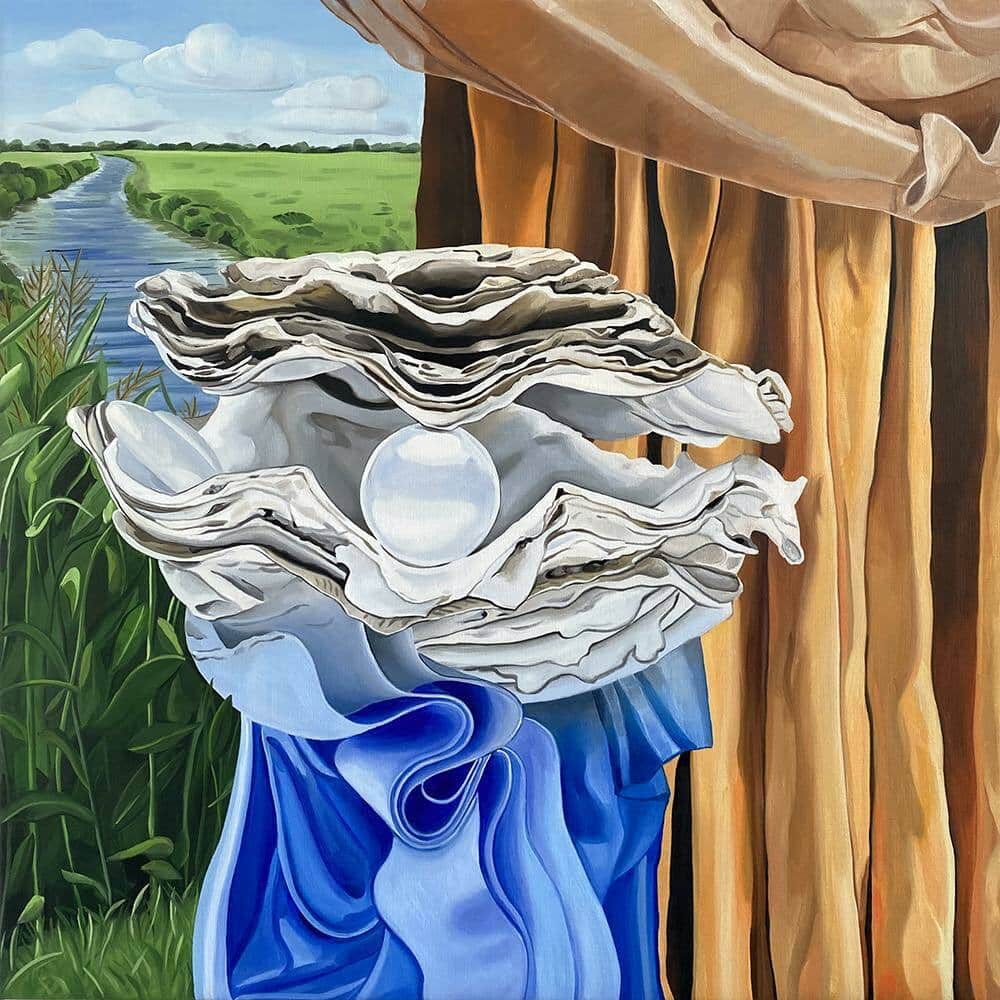 Bountiful VII (2023)
Bountiful VII (2023)If you visit one of Cop’s exhibitions, she hopes that you’ll feel like you’re part of another universe for a moment, and to enhance that experience, she also makes sculptures. “I think it’s extremely important how a work is presented in space. I hope that the moment when a spectator enters the hall is a moment of recognition and discovery. That they notice something that they have never seen before, but that triggers certain thoughts. I want to enhance that experience by working with multiple media.”
Ilke Cop: 'As soon as I get the feeling that the figure in the painting has become someone else, it's done'
The exhibitions in which works of art – from carpets to sculptures – transcend their medium and speak as one voice, are also the ones that stimulate her most. “That’s what I try to achieve,” she says. “An exhibition in which all works of art merge to immerse visitors in a world that they didn’t know before. A world that no longer exists or will ever exist.”
Work of Ilke Cop can be seen in her second solo exhibition:
. Hardcore/Softspore, from 9 June to 1 September, Tatjana Pieters Gallery, Ghent.
Cop also takes part in the following group exhibitions:
.Les Liasons Désireuses, from 26 May to 31 October, Kasteel d’Ursel, Hingene
. Claus Inspireert!, until 19 June, Mudel Deinze
. Biënnale voor Schilderkunst 9, from 30 June to 1 September, Mudel, Deinze

